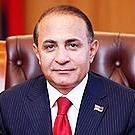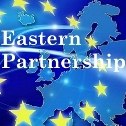(ABC News – "Post-Soviet republics in tug-of-war with Russia and the west") In December 1991 the Union of Soviet Socialist Republics disintegrated and 15 countries emerged from what had been a single-party state ruled by the Communist Party from Moscow. Recently we've heard a lot about one of those post-Soviet republics—Ukraine—but Ukraine is just one of 14 such states (excluding Russia), which attract varying degrees of interest and influence from Moscow.
The three tiny Baltic states—Estonia, Latvia and Lithuania—were only part of the USSR from the 1940s, and since declaring their independence they've become members of the EU and NATO, the military alliance established after the Second World War to counter Soviet power. Professor Alexander Cooley, author of Great Games, Local Rules: The New Great Power Contest in Central Asia, says that although they made western integration an absolute priority, two of these three tiny states have been left with a significant Soviet legacy.
"Well, the Baltic states were always the most nationalistic and the most anti-Soviet in terms of their orientation, even during Soviet times, but in Latvia and Estonia you have quite large Russian-speaking ethnic minorities," he says. "Handling the issue of the status of their citizenship has proven to be quite tricky. There are citizenship laws in place in both countries that deny citizenship to Russian speakers, so they are on so-called grey passports. This is why you hear the Kremlin in Moscow make comments about the plight of Russian citizens or Russian ethnics in the Balts. I think one of the consequences of the Crimea crisis is that you're going to see now NATO recommit itself to the territorial integrity of the Balts." […]











